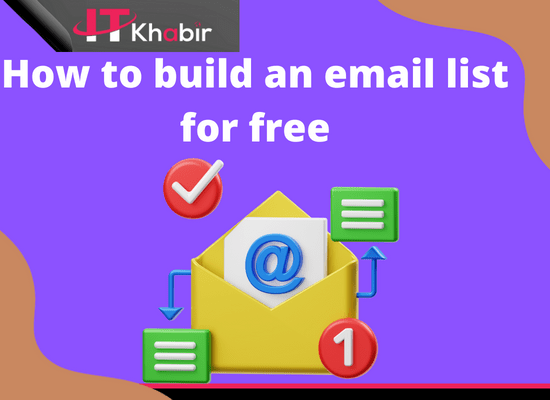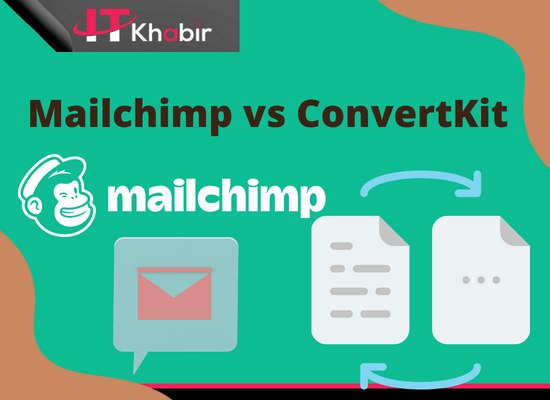Lead generation tools are applications or software that businesses use to identify and attract potential customers for their products or services. These tools assist in capturing contact information from potential leads and help businesses nurture them throughout the sales process.
They can include email marketing platforms, CRM systems, landing page builders, social media management tools, and chatbots, among others. By utilizing these tools, businesses can streamline their lead generation efforts, maximize their conversion rates, and ultimately drive more sales and revenue for their organization.

Categories Of Lead Generation Software
Lead generation software plays a crucial role in helping businesses capture and nurture potential customers. With the right tools in place, you can streamline and optimize your lead generation efforts, ultimately driving more conversions and revenue. In this blog post, we will explore the different categories of lead generation software and how they can enhance your marketing efforts.
Whether you’re looking to integrate your lead generation activities with your customer relationship management (CRM) system, improve your email marketing campaigns, or leverage social media for targeted campaigns, there’s a tool available to meet your specific needs.
We will delve into some of the most popular categories of lead generation software and how they can benefit your business.
Crm Integration Tools
A CRM integration tool allows you to seamlessly connect your lead generation activities with your CRM system. By integrating the two, you can ensure a smooth flow of leads from capture to conversion. With CRM integration tools, you can automatically sync lead data, track interactions, and manage customer relationships effectively.
This ensures that your sales team has access to up-to-date and accurate information, enabling them to make informed decisions and nurture prospects efficiently. Examples of popular CRM integration tools include HubSpot, Salesforce, and Zoho CRM.
Email Marketing Solutions
Email marketing continues to be a powerful lead generation strategy. By leveraging email marketing solutions, you can automate and optimize your email campaigns, ensuring that your messages reach the right audience at the right time.
These tools offer features such as email list segmentation, personalized emails, A/B testing, and performance analytics. They help you build and maintain a strong email list, deliver targeted and engaging content, and track the effectiveness of your campaigns. Popular email marketing solutions include MailChimp, Constant Contact, and Sendinblue.
Social Media Campaign Tools
Social media platforms provide ample opportunities for lead generation. With social media campaign tools, you can effectively target and engage your audience, driving leads and conversions. These tools offer features such as audience segmentation, social media scheduling, content curation, and performance tracking.
By leveraging these tools, you can reach a wider audience, create personalized campaigns, and analyze the impact of your social media activities. Popular social media campaign tools include Hootsuite, Buffer, and Sprout Social.
Landing Page And Form Creators
Landing pages and forms are vital elements in the lead generation process. Landing page and form creators allow you to create visually appealing and high-converting landing pages and forms without any coding knowledge.
These tools offer drag-and-drop functionality, customizable templates, A/B testing, and lead capture forms.
By utilizing landing page and form creators, you can create optimized landing pages, capture valuable lead data, and drive conversions. Examples of landing page and form creators include Unbounce, Instapage, and Leadpages.
Ppc And Seo Analytics Platforms
Pay-per-click (PPC) advertising and search engine optimization (SEO) are essential components of any lead generation strategy. PPC and SEO analytics platforms provide insights into your advertising and SEO efforts, helping you make data-driven decisions.
These tools offer features such as keyword research, competitor analysis, campaign tracking, and performance reporting.
By utilizing these platforms, you can optimize your PPC campaigns, improve your website’s visibility in search engines, and increase the quality and quantity of your leads. Examples of PPC and SEO analytics platforms include Google Ads, Moz, and SEMrush.
Features Essential In Powerful Tools
In today’s competitive business landscape, lead generation has become paramount for every organization striving to grow its customer base.
To successfully generate and nurture leads, businesses need powerful tools that provide them with all the necessary features. In this article, we will explore some of the most essential features that define powerful lead generation tools.
Automated Lead Capture Capabilities
Automated lead capture capabilities are a vital feature in any lead generation tool. These tools allow businesses to capture lead information seamlessly, without manual intervention.
With automated lead capture, businesses can set up forms and landing pages on their website, social media platforms, or email campaigns, enabling them to gather valuable contact information from potential customers.
Lead Scoring And Tracking Framework
A robust lead scoring and tracking framework is another essential feature that empowers businesses to prioritize and nurture leads effectively. By assigning scores to leads based on their engagement levels and fit with the target customer profile, businesses can identify the most qualified prospects.
These tools also enable businesses to track leads throughout the sales cycle, providing valuable insights for personalized and timely follow-ups.
Analytical Insights And Reporting Dashboards
Analytical insights and reporting dashboards play a crucial role in lead generation by providing businesses with valuable data that helps optimize their strategies.
Powerful lead generation tools come equipped with comprehensive reporting capabilities, offering insights into key performance indicators, conversion rates, and campaign effectiveness.
The ability to visualize and analyze data allows businesses to make data-driven decisions and continually refine their lead generation efforts.
Integration With Sales And Marketing Channels
Integration with sales and marketing channels is a must-have feature in powerful lead generation tools. These tools seamlessly integrate with customer relationship management (CRM) systems, email marketing platforms, and other sales and marketing tools, enabling businesses to manage and nurture leads effectively across various channels. This integration streamlines the lead generation process, eliminating manual data transfer and ensuring a seamless experience for both prospects and sales teams.
Customization And User-friendly Interface
Customization and a user-friendly interface are key features that make lead generation tools truly powerful. Businesses need the flexibility to tailor the tools to their specific requirements, such as designing customizable forms, landing pages, and workflows.
A user-friendly interface ensures that businesses can easily navigate and operate the tool without requiring extensive training.
A tool that is intuitive and accessible empowers businesses to make the most out of their lead generation efforts.
Exploring Top Lead Generation Tools
When it comes to lead generation, utilizing the right tools can make all the difference. With the abundance of options available, it can be overwhelming to identify which ones are truly effective. In this article, we will explore the top lead generation tools across various categories.
Whether you’re looking to manage leads efficiently, drive engagement through email marketing, or maximize conversions with landing pages, we have you covered.
Most Effective Crms For Lead Management
One of the most crucial aspects of lead generation is effective lead management. A well-organized CRM (Customer Relationship Management) system is essential in helping businesses stay on top of their leads and nurture them into customers. Here are some of the most popular and efficient CRMs:
| CRM | Key Features |
| HubSpot | Powerful lead tracking and segmentation |
| Salesforce | Robust automation and integration capabilities |
| Zoho CRM | Intuitive interface with customizable workflows |
Email Marketing Tools That Drive Results
Email marketing continues to be a highly effective strategy for lead generation. To make the most out of your email campaigns, it is crucial to choose the right tools. Here are some email marketing tools known for their effectiveness:
- MailChimp: User-friendly interface with advanced automation features
- Aweber: Robust autoresponder capabilities for targeted campaigns
- ActiveCampaign: Powerful segmentation and personalization options
Social Media Tools For Audience Engagement
In today’s digital age, social media plays a pivotal role in lead generation. To engage your audience effectively on social platforms, you need the right tools. Here are some popular social media tools known for their audience engagement capabilities:
- Hootsuite: Manage and schedule social media posts across multiple platforms
- Buffer: Streamline content curation and promotion through social networks
- Sprout Social: Monitor social media conversations and analyze performance
Landing Page Builders To Maximize Conversions
A compelling landing page can significantly impact your lead generation efforts. To create high-converting landing pages, consider using the following tools:
- Unbounce: Drag-and-drop builder with A/B testing capabilities
- Leadpages: Conversion-focused templates with built-in analytics
- Instapage: Real-time collaboration and easy integrations
Best Seo Tools For Generating Quality Leads
When it comes to generating quality leads, search engine optimization (SEO) plays a crucial role in driving organic traffic to your website. Here are some of the best SEO tools that can help you generate leads:
- Google Analytics: Track website performance and user behavior
- Ahrefs: Conduct in-depth keyword research and competitor analysis
- Moz Pro: Monitor your website’s SEO health and performance

Credit: www.zendesk.com
Streamlining Lead Generation
Streamlining lead generation is crucial for maximizing the effectiveness and efficiency of your marketing efforts. By simplifying and optimizing the process of generating leads, you can focus on high-quality prospects and convert more of them into paying customers. To achieve this, utilizing lead generation tools is essential.
These tools leverage advanced technology to automate tasks, integrate data from multiple sources, and enhance the overall quality of leads. In the following sections, we will explore how advanced tools can enhance lead quality, the benefits of integrating multiple tools, and the role of AI and machine learning in automating lead generation processes.
Enhancing Lead Quality With Advanced Tools
When it comes to lead generation, quality is always more important than quantity. To ensure you are targeting the right audience and attracting potential customers who are genuinely interested in your products or services, advanced tools play a crucial role.
These tools provide valuable insights into your target audience’s preferences, behavior, and needs. By utilizing data analytics and predictive algorithms, you can identify the most promising leads and personalize your marketing approach accordingly. These tools also enable you to track lead interactions, scoring them based on their level of engagement and likelihood to convert.
Furthermore, advanced lead generation tools can integrate with your customer relationship management (CRM) system, allowing you to manage and nurture leads effectively. With real-time updates and automated workflows, you can prioritize leads, assign appropriate actions, and nurture them throughout the customer journey.
Integrating Multiple Tools For Maximized Impact
When it comes to lead generation, using a single tool may not be sufficient to achieve the desired results. By integrating multiple tools, you can harness the power of different functionalities and optimize your lead generation efforts.
For instance, combining a lead capture tool with an email marketing automation platform can streamline the process of capturing leads and nurturing them through targeted email campaigns. You can capture contact information through optimized landing pages and forms, automatically add leads to your email list, and send personalized emails based on their interests and behaviors.
Similarly, integrating social media monitoring tools with your lead generation strategy can provide valuable insights into your target audience’s online activities, interests, and interactions. By identifying the platforms and content that resonate the most with your leads, you can fine-tune your social media campaigns and improve lead quality.
Automating Processes With Ai And Machine Learning
In the digital age, AI and machine learning have revolutionized lead generation by automating processes and optimizing performance. These technologies can analyze large volumes of data, identify patterns, and make data-driven predictions to enhance lead generation outcomes.
AI-powered chatbots, for example, can engage website visitors, answer their queries, and capture their contact information, even when your team is unavailable. These chatbots utilize natural language processing and sentiment analysis to understand and respond to customer inquiries, enhancing the overall user experience and improving lead capture rates.
Machine learning algorithms can also analyze past lead conversion data to identify the characteristics of your most valuable customers. By profiling leads based on these characteristics, you can prioritize your efforts and allocate resources effectively, ensuring a higher lead-to-sale conversion rate.
To sum up, streamlining lead generation through the use of advanced tools is essential for businesses aiming to thrive in today’s competitive landscape. By enhancing lead quality, integrating multiple tools, and leveraging AI and machine learning, you can optimize your lead generation efforts and drive more successful conversions.
Measuring Roi Of Lead Generation Solutions
Metrics To Track Tool Effectiveness
When it comes to implementing lead generation solutions, it’s essential to measure their effectiveness to determine the return on investment. By tracking specific metrics, you can gain insights into how well these tools are performing and make informed decisions on optimizing your lead generation strategy.
One important metric to track is the number of leads generated. This quantifiable data allows you to gauge the success of your lead generation solutions and see if they are meeting your goals. By setting specific targets, you can easily compare the performance of different tools and identify which ones are most effective in generating leads for your business.
Another crucial metric is the cost per lead. Knowing how much each lead acquisition is costing you is vital in optimizing your overall marketing budget. By analyzing the cost per lead for each tool, you can make informed decisions about which solutions are providing the best return on investment and adjust your strategy accordingly.
Analyzing Conversion Rates And Lead Quality
Conversion rates and lead quality are two key factors in measuring the success of your lead generation solutions. By analyzing conversion rates, you can determine how effectively these tools are turning prospects into actual customers. This metric provides valuable insights into the efficiency of your funnel and helps identify areas for improvement.
To measure conversion rates, you need to assess how many leads successfully complete a desired action, such as filling out a contact form or making a purchase. By tracking this metric over time, you can identify trends and make data-driven decisions to optimize your lead generation strategies.
Additionally, it’s crucial to assess the quality of the leads generated. Not all leads are created equal, and it’s important to focus on high-quality prospects that are more likely to convert into customers. By monitoring lead quality metrics, such as the percentage of qualified leads or the conversion rate of qualified leads, you can gauge the effectiveness of your lead generation tools in attracting valuable prospects.
Scaling Business Growth With Strategic Tool Use
To scale your business growth, it’s important to leverage lead generation tools strategically. By carefully selecting and implementing the right tools, you can maximize your lead generation efforts and drive more qualified leads into your sales funnel.
Start by conducting thorough research to identify which lead generation tools align with your specific business goals and target audience. Consider factors such as features, pricing, customer reviews, and integration capabilities to make an informed decision.
Once you have chosen the right tools, implement them into your lead generation strategy and track their effectiveness using the aforementioned metrics. Regularly analyze the data to identify areas for improvement and adjust your strategies accordingly. By iteratively optimizing your tool usage, you can continuously scale your business growth and drive revenue.
Related Articles
- How to Make Custom Software: A Step-by-Step Guide
- A Small Software Company – 2 Customer Service Representatives Managing Customer Queries
- How Long Does It Take to Build Custom Software: Unveiling the Time Frame
- What is an Example of Customized Software? Unveiling the Power Behind Tailored Solutions
Frequently Asked Questions On What Are The Lead Generation Tools
What Are Lead Generation Tools?
Lead generation tools are software or platforms that help businesses attract potential customers and convert them into leads. These tools can range from email marketing software to social media automation tools, all designed to streamline the process of capturing and nurturing leads.
How Do Lead Generation Tools Work?
Lead generation tools work by automating and optimizing various marketing activities, such as lead capture, lead nurturing, and lead scoring. These tools use different strategies, such as email marketing campaigns or landing page optimization, to attract visitors and turn them into leads.
By providing valuable content and personalized experiences, these tools help businesses generate and convert quality leads.
What Are The Benefits Of Using Lead Generation Tools?
Using lead generation tools can bring numerous benefits to businesses. These tools help increase lead conversion rates, streamline marketing processes, and improve overall efficiency. They enable businesses to target specific demographics, track and analyze data, and automate repetitive tasks. Ultimately, lead generation tools help businesses save time and resources while generating high-quality leads.
Are Lead Generation Tools Suitable For All Businesses?
Lead generation tools can be beneficial for businesses of all sizes and industries. Whether you’re a small startup or a large enterprise, these tools can help streamline your marketing efforts and improve lead generation. However, it’s important to choose the right tools that align with your business goals and target audience.
Conduct thorough research and consider your unique needs before investing in lead generation tools.
Conclusion
To sum up, lead generation tools are a crucial resource for businesses aiming to expand their customer base and boost sales. The integration of these tools empowers companies to streamline their marketing efforts, identify potential leads, and nurture them towards conversion.
By leveraging the right lead generation tools, businesses can enhance their overall productivity, efficiency, and ultimately, profitability. In the constantly evolving digital landscape, investing in these essential tools is essential for staying competitive and achieving long-term success.















